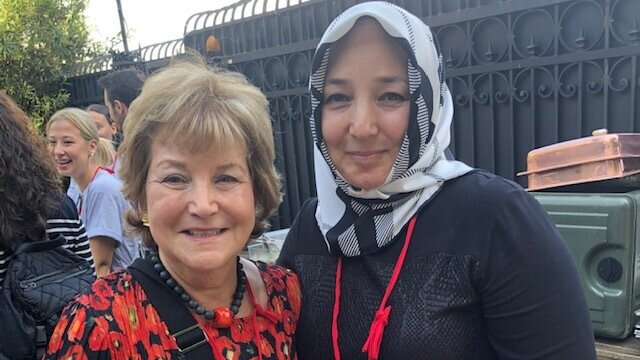
Advertisement

Johanna Mendelson Forman
Adjunct Professor in International Affairs
https://www.conflictcuisine.com/about/johanna-mendelson-formanMost popular
Johanna's collections
Ramadan is observed every year during the ninth month of the Islamic lunar calendar. Taking place for approximately 30 days – depending on the sighting of the new moon – it marks the month that the Quran was revealed to the Prophet Muhammad in AD 610. Celebrated by millions of Muslims across the globe, Islam requires that all able-bodied Muslims mark this holy month by fasting from sunrise to sunset. The month also features prayers and acts of charity. The rituals vary from country to country. The LIFE Project in Turkey trained Turkish and Syrian women in food entrepreneurship. It also carried with it another benefit – a cross-cultural sharing of recipes from the Muslim world that often featured special dishes designated as ones used at the Iftar feasts, the traditional break-fasts at sundown. I was also able to learn more about the Suhoor, or pre-sunrise meal that fortifies a person throughout the day. In Istanbul, one of the cities where the food training took place, there is still a tradition dating from the Ottoman times of having drummers march through the streets to awaken sleepers so they can partake of the Suhoor. Drumming usually starts at 2:30am! My co-editor, Alaa Alarori," in Ramadan since we often prepare multiple dishes on Iftar, home cooks usually go through the entire menu, I mean they probably prepare every dish they know. So normally cooks tend to prepare stews and soups to compensate for the dehydration during the day, and dishes with high protein and vegetables to get the maximum nutrients out of those ingredients and some sweets after the meal to balance the blood sugar. Dishes with high carbs and less protein and fibers are usually not preferred to avoid weight gain. Also, since Ramadan is the season of eating together and big family gatherings dishes with lots of meat are served to show hospitality." So my dishes of choice would be, Shurbet Khudra w Dajaj, Vegetable soup with chicken 56, Makluobeh, an upside-down rice with eggplant and lamb 90, Fattoush, a bread salad 124, Shakriyeh, a lamb stew with yogurt 128, Tabbouleh, a fine grain bulghur salad 146, Shish Barak, dumplings cooked in yogurt sauce 152, Fakhdet Lahmeh, leg of lamb 156, Salatet Jarjeer, an arugula salad 158, Kunae Nabulsieh, a kunafe from Nablus 168, Mansaf, lamb cooked in yogurt 172, Safarjaliyeh, quince and lamb stew 214, Ris el Freekeeh, freekeh with rice and lamb 216, and Kibbeh el Ris, rice kibbeh 228. We are pleased to share with you some of our favorite dishes featured in the cookbook that are part of this larger volume that memorializes the food of women and men who have connected to their homes through the kitchen. Enjoy these dishes no matter whether or not you celebrate this holy month. They are delicious!
Features & Stories

Johanna's favorite cookbooks
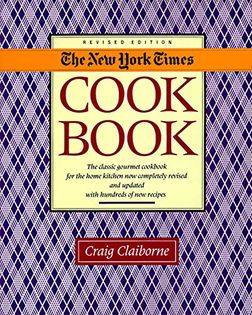
The New York Times Cook Book
This cookbook is one of two books I used when I was first married and in graduate school when I was learning to cook. Claiborne provided good instructions. The recipes had an international flair, yet were not too complex for a beginner.
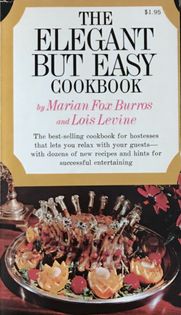
The Elegant But Easy Cookbook
When I first moved to Washington, D.C. in 1971 a co-worker decided to help me improve my cooking skills. She bought me this great little paperback which remains an important go-to for specific recipes. The fruit torte is one of the easiest and tastiest cakes for all seasons. While other recipes may be dated, I remain devoted to this little book and keep it on my kitchen bookshelf.
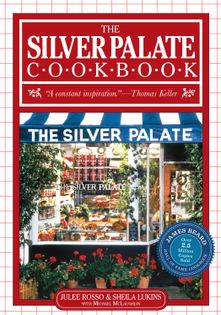
The Silver Palate Cookbook
How can anyone not like the Silver Palate Cookbook? I remember their retail store in New York City. Their famous Chicken Marbella recipe became the standard for those interested in the new flavors of modern American cuisine. Even Ottolenghi has adapted this recipe using dates and credits these two women for inventing a classic on American tables.

Jerusalem
This beautiful cookbook contains some of the tastiest recipes reflecting the borderless nature of cuisine in the Middle East. Of all of Ottolenghi’s cookbooks, this volume has a depth of wisdom, a plethora of good and easy recipes, and a deep sense of place. It is my go-to for such dishes as chicken with clementines!
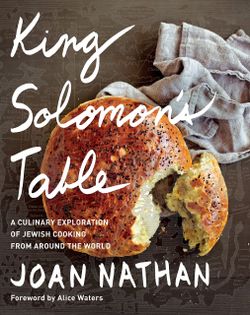
King Solomon’s Table
A recent addition to my kitchen library, this cookbook is more than a series of recipes, but a global exploration of how diasporas spread their cuisines and adopt them to the new location. Recipes are clear, and some of the cakes and cookies, but especially the Ethiopian challah are worth the price of the book.
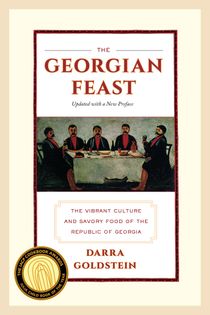
The Georgian Feast
Georgian food was once considered the only edible cuisine available during the dark days of the Soviet Union. Goldstein, a food scholar and former editor of Gastronomica, has written a cookbook about one of the most interesting cuisines that take you way beyond katchapuri that is often associated with Georgian cuisine. The anniversary edition updates the text and adds some new recipes.
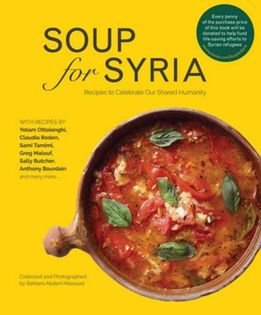
Soup for Syria
This cookbook was created at the height of the Syrian conflict when thousands of people fled the country in one of the most devastating civil wars. The book contains an assortment of recipes from chefs around the world. Proceeds from the sale went to charities supporting the Syrian refugees.
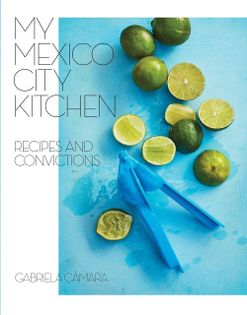
My Mexico City Kitchen
I first cut my teeth on the food south of the border as a high school student in Mexico City. Gabriela Camara, a successful chef and restauranteur, has created a very enjoyable and most important, an accessible book to the excellent foods of the city – nothing fancy, but just delicious. Her Mexican shrimp cocktail recipe is one of the best and easiest to prepare.
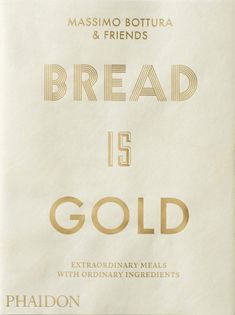
Bread is Gold
In 2015 during the Milan Food Expo, Boturra wanted a way to use the food waste from the Expo to help feed the homeless of that city. With the collaboration of a local Catholic parish, and with the blessing of the Pope, Boturra opened the first Refettorio. He invited some of the greatest chefs in the world to come and cook in the church’s refettorio kitchen to repurpose food waste and create what I consider to be the beginning of the social gastronomy movement. The book is a testament to how food has become a means of connecting and also a way to create social integration. Today there are Refettorio dining rooms in London, Paris and Rio de Janeiro with another planned for New York City.
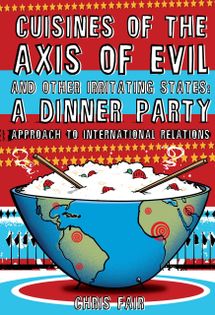
Cuisines of the Axis of Evil and Other Irritating States
The kitchen is the new venue of foreign policy, and this cookbook takes that to heart. In a very clever book of recipes that follow what was in 2003 called the Axis of Evil by the George Bush administration, Fair takes on the cuisines of countries that were named to be part of this cabal – from Cuba, to Iran, she also adds her own take on bad actors that have fascinating cuisines. A true “conflict cuisine” cookbook.
Advertisement

